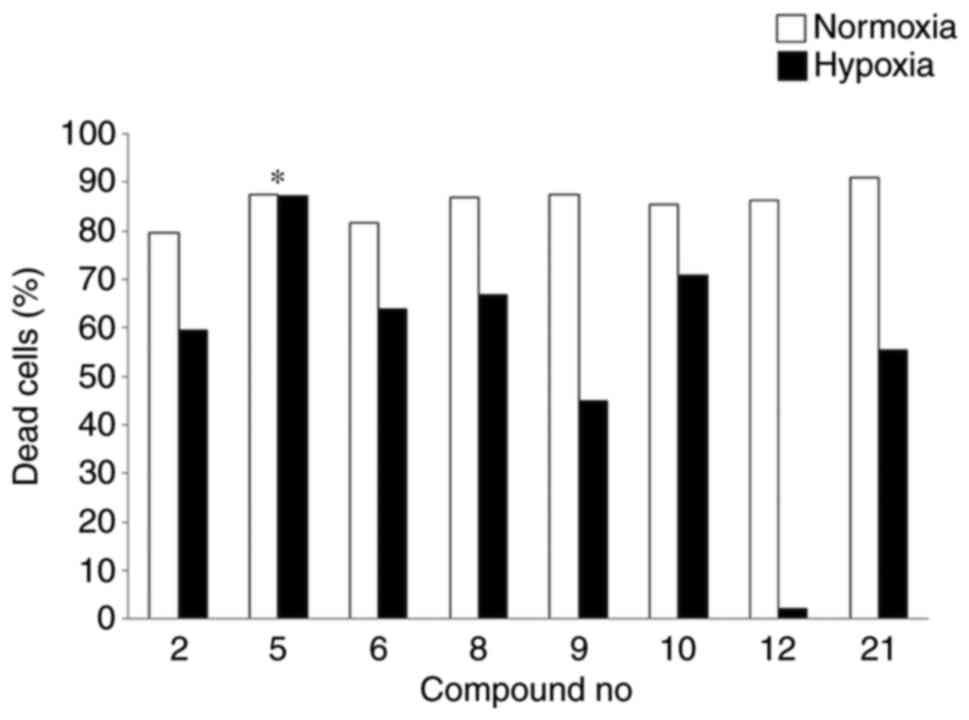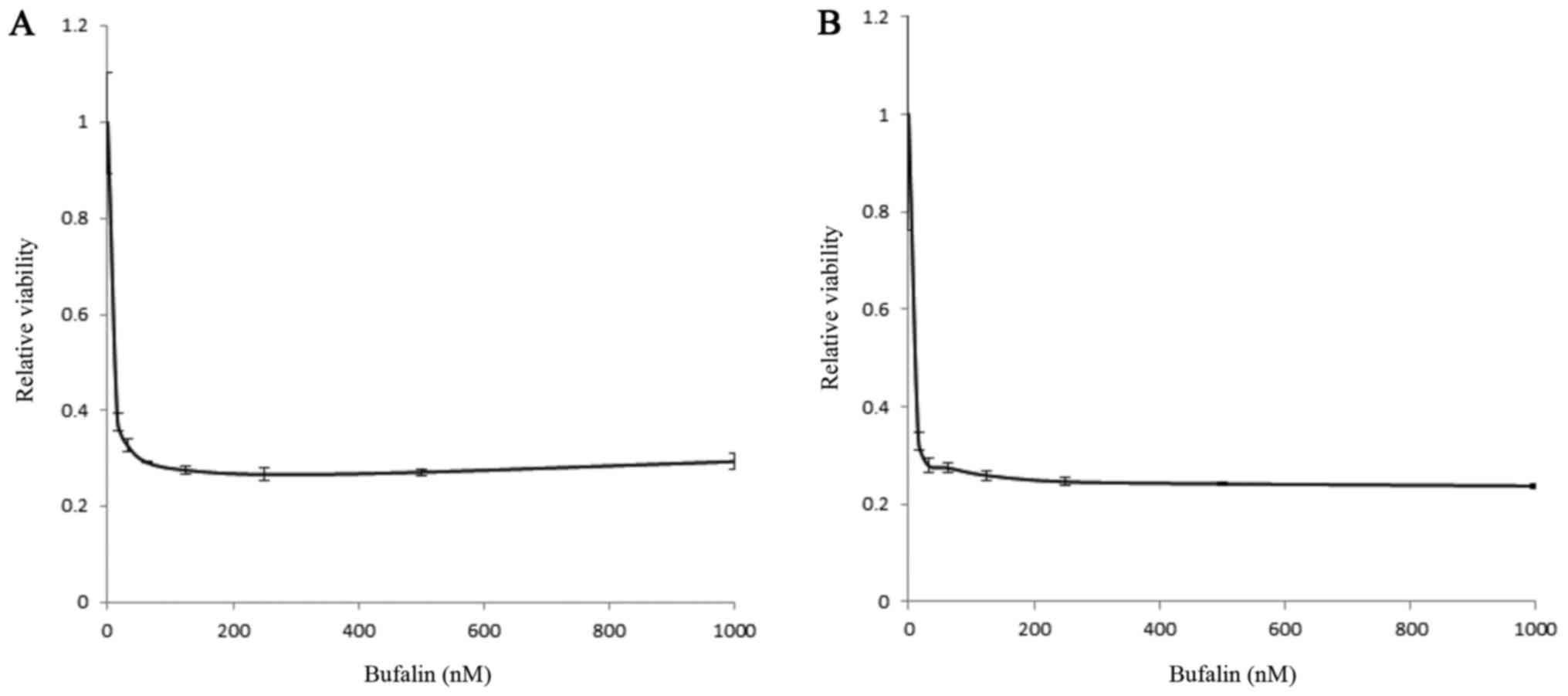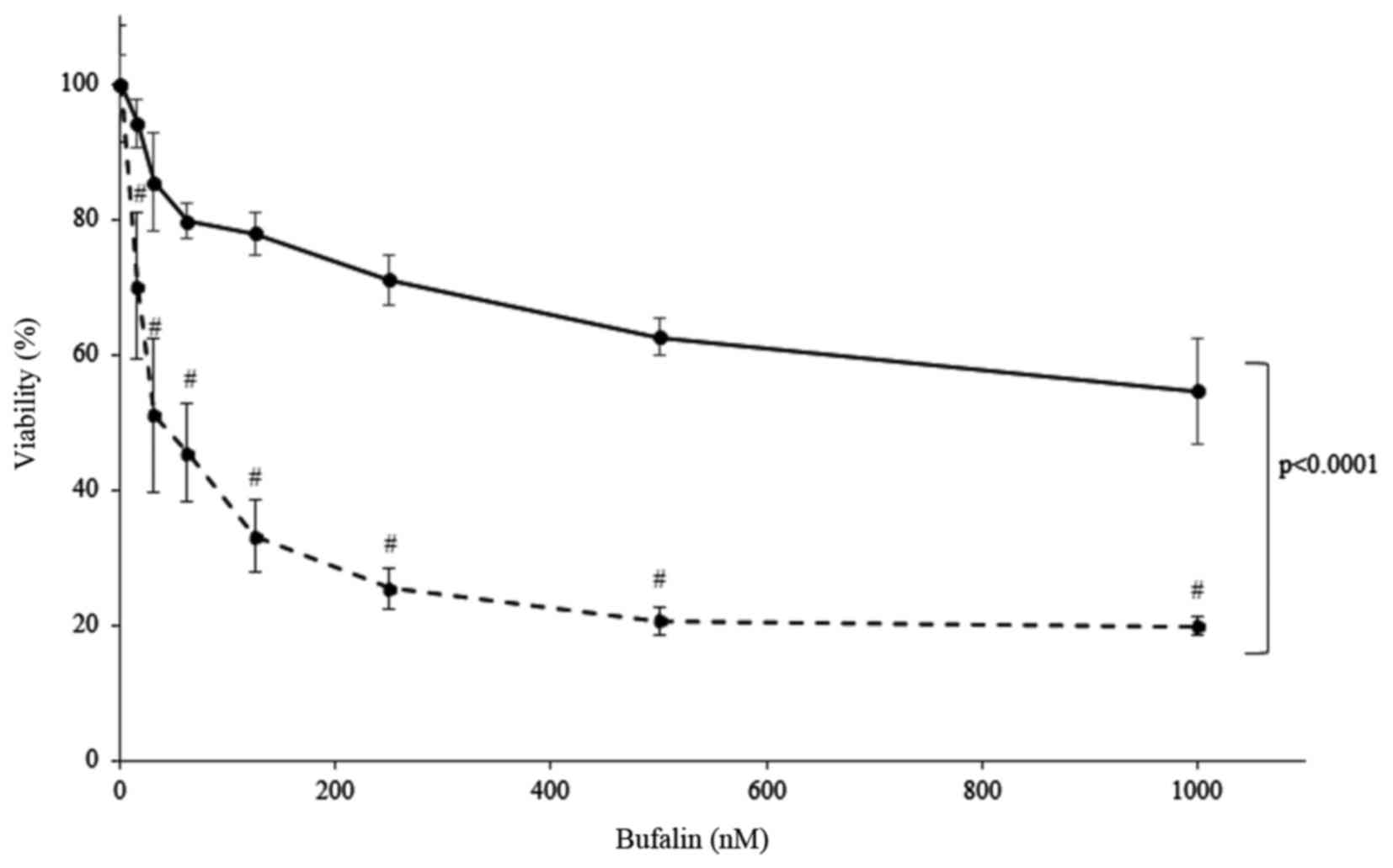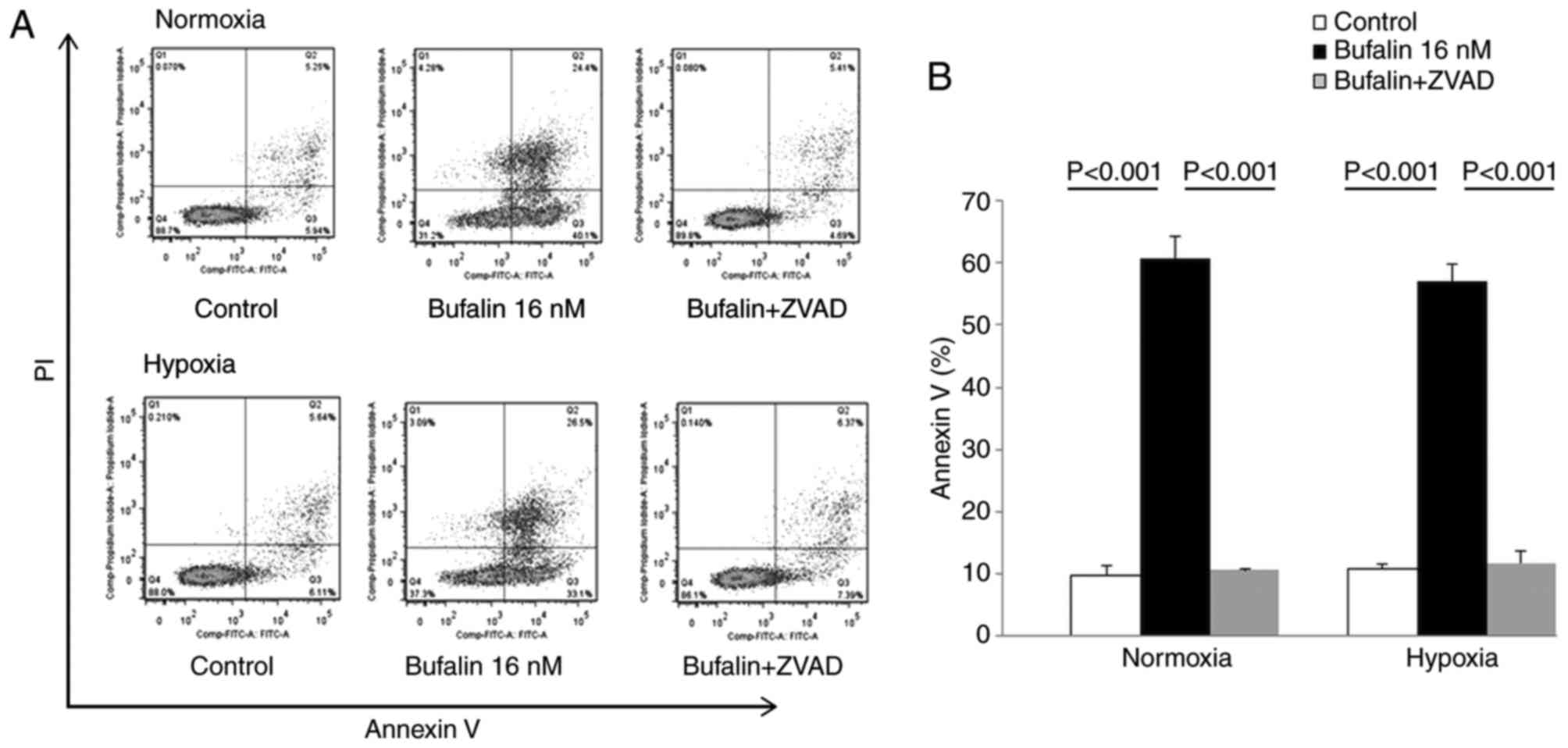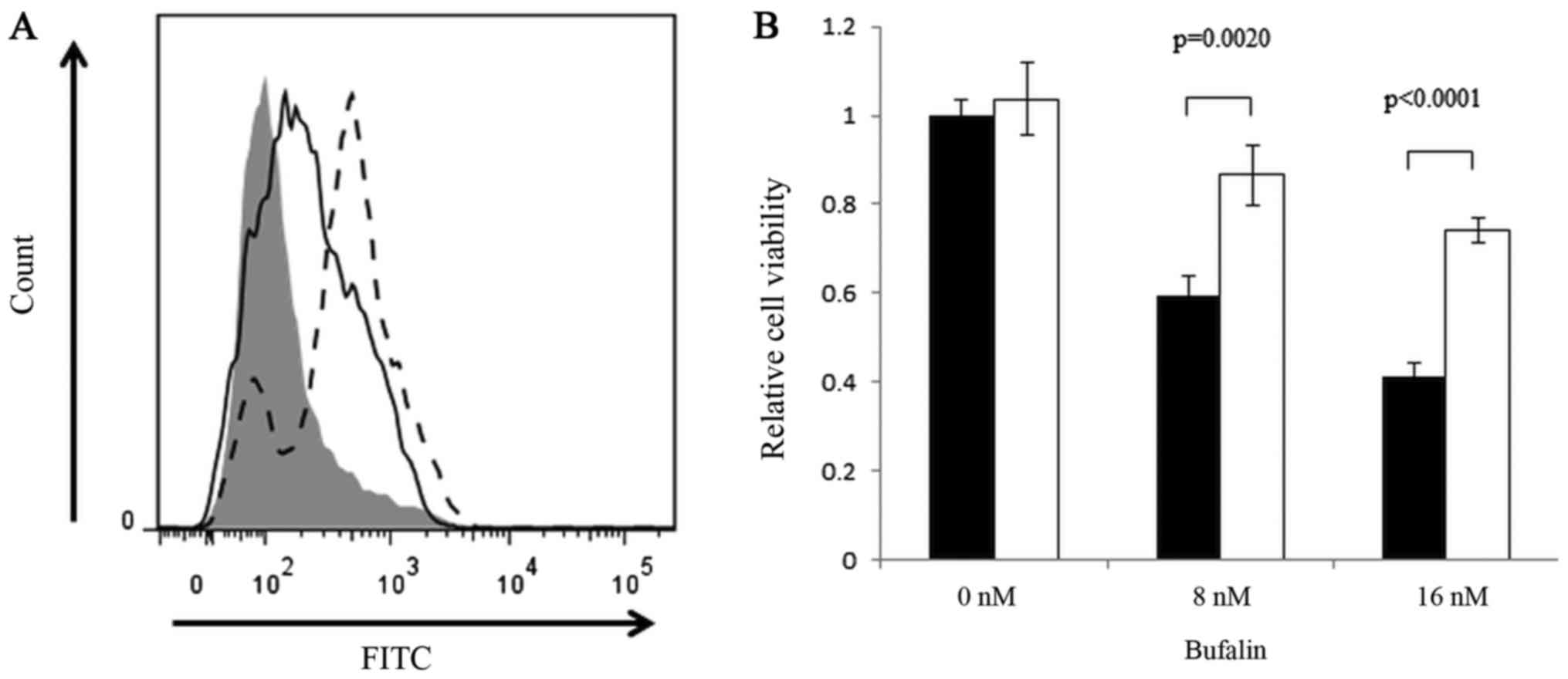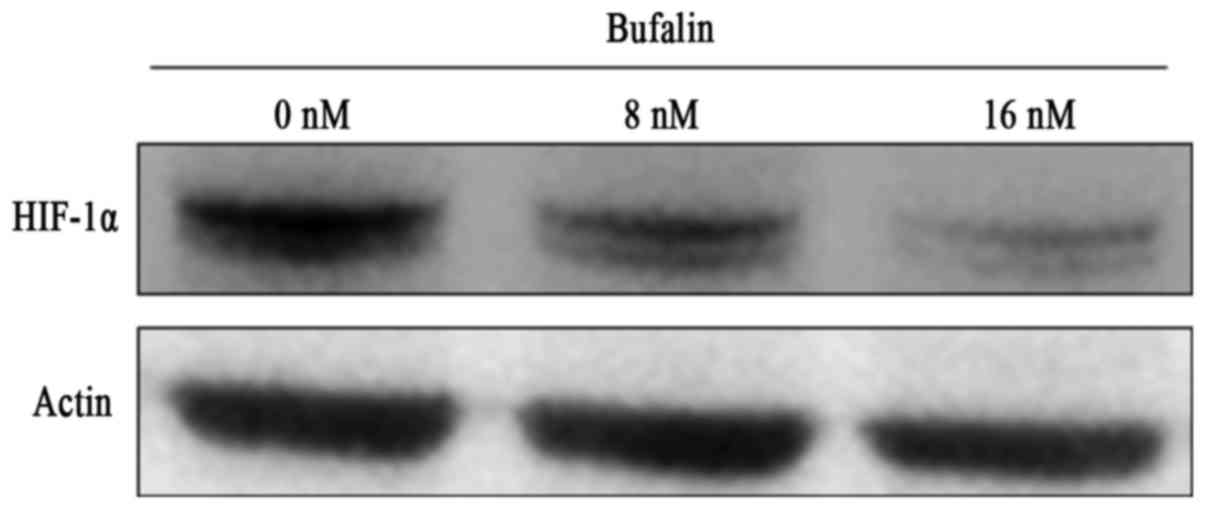|
1
|
Di Marzo L, Desantis V, Solimando AG,
Ruggieri S, Annese T, Nico B, Fumarulo R, Vacca A and Frassanito
MA: Microenvironment drug resistance in multiple myeloma: Emerging
new players. Oncotarget. 7:60698–60711. 2016. View Article : Google Scholar : PubMed/NCBI
|
|
2
|
Kawano Y, Moschetta M, Manier S, Glavey S,
Görgün GT, Roccaro AM, Anderson KC and Ghobrial IM: Targeting the
bone marrow microenvironment in multiple myeloma. Immunol Rev.
263:160–172. 2015. View Article : Google Scholar : PubMed/NCBI
|
|
3
|
Wang J, Faict S, Maes K, De Bruyne E, Van
Valckenborgh E, Schots R, Vanderkerken K and Menu E: Extracellular
vesicle cross-talk in the bone marrow microenvironment:
Implications in multiple myeloma. Oncotarget. 7:38927–38945.
2016.PubMed/NCBI
|
|
4
|
Garvalov BK and Acker T: Implications of
oxygen homeostasis for tumor biology and treatment. Adv Exp Med
Biol. 903:169–185. 2016. View Article : Google Scholar : PubMed/NCBI
|
|
5
|
Hu Y, Kirito K, Yoshida K, Mitsumori T,
Nakajima K, Nozaki Y, Hamanaka S, Nagashima T, Kunitama M, Sakoe K
and Komatsu N: Inhibition of hypoxia-inducible factor-1 function
enhances the sensitivity of multiple myeloma cells to melphalan.
Mol Cancer Ther. 8:2329–2338. 2009. View Article : Google Scholar : PubMed/NCBI
|
|
6
|
Daster S, Amatruda N, Calabrese D, Ivanek
R, Turrini E, Droeser RA, Zajac P, Fimognari C, Spagnoli GC, Iezzi
G, et al: Induction of hypoxia and necrosis in multicellular tumor
spheroids is associated with resistance to chemotherapy treatment.
Oncotarget. 8:1725–1736. 2017. View Article : Google Scholar : PubMed/NCBI
|
|
7
|
Zhao W, Xia SQ, Zhuang JP, Zhang ZP, You
CC, Yan JL and Xu GP: Hypoxia-induced resistance to
cisplatin-mediated apoptosis in osteosarcoma cells is reversed by
gambogic acid independently of HIF-1α. Mol Cell Biochem. 420:1–8.
2016. View Article : Google Scholar : PubMed/NCBI
|
|
8
|
Qin Y, Roszik J, Chattopadhyay C,
Hashimoto Y, Liu C, Cooper ZA, Wargo JA, Hwu P, Ekmekcioglu S and
Grimm EA: Hypoxia-driven mechanism of vemurafenib resistance in
melanoma. Mol Cancer Ther. 15:2442–2454. 2016. View Article : Google Scholar : PubMed/NCBI
|
|
9
|
Mao XG, Wang C, Liu DY, Zhang X, Wang L,
Yan M, Zhang W, Zhu J, Li ZC, Mi C, et al: Hypoxia upregulates HIG2
expression and contributes to bevacizumab resistance in
glioblastoma. Oncotarget. 7:47808–47820. 2016. View Article : Google Scholar : PubMed/NCBI
|
|
10
|
Ohtsuki T, Yawata Y, Wada H, Sugihara T,
Mori M and Namba M: Two human myeloma cell lines, amylase-producing
KMS-12-PE and amylase-non-producing KMS-12-BM, were established
from a patient, having the same chromosome marker,
t(11;14)(q13;q32). Br J Haematol. 73:199–204. 1989. View Article : Google Scholar : PubMed/NCBI
|
|
11
|
Ikeyama S, Nakagawa S, Arakawa M, Sugino H
and Kakinuma A: Purification and characterization of IgE produced
by human myeloma cell line, U266. Mol Immunol. 23:159–167. 1986.
View Article : Google Scholar : PubMed/NCBI
|
|
12
|
Pastor N and Cortés F: Bufalin influences
the repair of X-ray-induced DNA breaks in Chinese hamster cells.
DNA Repair (Amst). 2:1353–1360. 2003. View Article : Google Scholar : PubMed/NCBI
|
|
13
|
Wu SH, Hsiao YT, Chen JC, Lin JH, Hsu SC,
Hsia TC, Yang ST, Hsu WH and Chung JG: Bufalin alters gene
expressions associated DNA damage, cell cycle and apoptosis in
human lung cancer NCI-H460 cells in vitro. Molecules. 19:6047–6057.
2014. View Article : Google Scholar : PubMed/NCBI
|
|
14
|
Wu SH, Wu TY, Hsiao YT, Lin JH, Hsu SC,
Hsia TC, Yang ST, Hsu WH and Chung JG: Bufalin induces cell death
in human lung cancer cells through disruption of DNA damage
response pathways. Am J Chin Med. 42:729–742. 2014. View Article : Google Scholar : PubMed/NCBI
|
|
15
|
Li D, Zhou L, Huang J and Xiao X: Effect
of multidrug resistance 1/P-glycoprotein on the hypoxia-induced
multidrug resistance of human laryngeal cancer cells. Oncol Lett.
12:1569–1574. 2016. View Article : Google Scholar : PubMed/NCBI
|
|
16
|
Zhou C, Tan W, Lv H, Gao F and Sun J:
Hypoxia-inducible microRNA-488 regulates apoptosis by targeting Bim
in osteosarcoma. Cell Oncol (Dordr). 39:463–471. 2016. View Article : Google Scholar : PubMed/NCBI
|
|
17
|
Chen YL, Yang TY, Chen KC, Wu CL, Hsu SL
and Hsueh CM: Hypoxia can impair doxorubicin resistance of
non-small cell lung cancer cells by inhibiting MRP1 and P-gp
expression and boosting the chemosensitizing effects of MRP1 and
P-gp blockers. Cell Oncol (Dordr). 39:411–433. 2016. View Article : Google Scholar : PubMed/NCBI
|
|
18
|
Feng H, Wang J, Chen W, Shan B, Guo Y, Xu
J, Wang L, Guo P and Zhang Y: Hypoxia-induced autophagy as an
additional mechanism in human osteosarcoma radioresistance. J Bone
Oncol. 5:67–73. 2016. View Article : Google Scholar : PubMed/NCBI
|
|
19
|
Mohyeldin A, Garzón-Muvdi T and
Quiñones-Hinojosa A: Oxygen in stem cell biology: A critical
component of the stem cell niche. Cell Stem Cell. 7:150–161. 2010.
View Article : Google Scholar : PubMed/NCBI
|
|
20
|
Hoshino H, Nagano H, Haraguchi N,
Nishikawa S, Tomokuni A, Kano Y, Fukusumi T, Saito T, Ozaki M,
Sakai D, et al: Hypoxia and TP53 deficiency for induced pluripotent
stem cell-like properties in gastrointestinal cancer. Int J Oncol.
40:1423–1430. 2012.PubMed/NCBI
|
|
21
|
Li Z and Rich JN: Hypoxia and hypoxia
inducible factors in cancer stem cell maintenance. Curr Top
Microbiol Immunol. 345:21–30. 2010.PubMed/NCBI
|
|
22
|
Ma Y, Liang D, Liu J, Axcrona K, Kvalheim
G, Stokke T, Nesland JM and Suo Z: Prostate cancer cell lines under
hypoxia exhibit greater stem-like properties. PLoS One.
6:e291702011. View Article : Google Scholar : PubMed/NCBI
|
|
23
|
Kawano Y, Kikukawa Y, Fujiwara S, Wada N,
Okuno Y, Mitsuya H and Hata H: Hypoxia reduces CD138 expression and
induces an immature and stem cell-like transcriptional program in
myeloma cells. Int J Oncol. 43:1809–1816. 2013. View Article : Google Scholar : PubMed/NCBI
|
|
24
|
Sun J, Xu K, Qiu Y, Gao H, Xu J, Tang Q
and Yin P: Bufalin reverses acquired drug resistance by inhibiting
stemness in colorectal cancer cells. Oncol Rep. 38:1420–1430. 2017.
View Article : Google Scholar : PubMed/NCBI
|
|
25
|
Wang H, Zhang C, Xu L, Zang K, Ning Z,
Jiang F, Chi H, Zhu X and Meng Z: Bufalin suppresses hepatocellular
carcinoma invasion and metastasis by targeting HIF-1α via the
PI3K/AKT/mTOR pathway. Oncotarget. 7:20193–20208. 2016.PubMed/NCBI
|
|
26
|
Xie CM, Liu XY, Yu S and Cheng CH: Cardiac
glycosides block cancer growth through HIF-1α- and NF-κB-mediated
Plk1. Carcinogenesis. 34:1870–1880. 2013. View Article : Google Scholar : PubMed/NCBI
|
|
27
|
Jahanban-Esfahlan R, de la Guardia M,
Ahmadi D and Yousefi B: Modulating tumor hypoxia by nanomedicine
for effective cancer therapy. J Cell Physiol. 233:2019–2031. 2017.
View Article : Google Scholar : PubMed/NCBI
|
|
28
|
Yu T, Tang B and Sun X: Development of
inhibitors targeting hypoxia-inducible factor 1 and 2 for cancer
therapy. Yonsei Med J. 58:489–496. 2017. View Article : Google Scholar : PubMed/NCBI
|
|
29
|
Borsi E, Terragna C, Brioli A, Tacchetti
P, Martello M and Cavo M: Therapeutic targeting of hypoxia and
hypoxia-inducible factor 1 alpha in multiple myeloma. Transl Res.
165:641–650. 2015. View Article : Google Scholar : PubMed/NCBI
|
|
30
|
Bick RJ, Poindexter BJ, Sweney RR and
Dasgupta A: Effects of Chan Su, a traditional Chinese medicine, on
the calcium transients of isolated cardiomyocytes: Cardiotoxicity
due to more than Na, K-ATPase blocking. Life Sci. 72:699–709. 2002.
View Article : Google Scholar : PubMed/NCBI
|
|
31
|
Liu M, Feng LX, Sun P, Liu W, Wu WY, Jiang
BH, Yang M, Hu LH, Guo DA and Liu X: A novel bufalin derivative
exhibited stronger apoptosis-inducing effect than bufalin in A549
lung cancer cells and lower acute toxicity in mice. PLoS One.
11:e01597892016. View Article : Google Scholar : PubMed/NCBI
|
|
32
|
Wu SH, Bau DT, Hsiao YT, Lu KW, Hsia TC,
Lien JC, Ko YC, Hsu WH, Yang ST, Huang YP and Chung JG: Bufalin
induces apoptosis in vitro and has antitumor activity against human
lung cancer xenografts in vivo. Environ Toxicol. 32:1305–1317.
2017. View Article : Google Scholar : PubMed/NCBI
|
|
33
|
Xie XB, Yin JQ, Wen LL, Gao ZH, Zou CY,
Wang J, Huang G, Tang QL, Colombo C, He WL, et al: Critical role of
heat shock protein 27 in bufalin-induced apoptosis in human
osteosarcomas: A proteomic-based research. PLoS One. 7:e473752012.
View Article : Google Scholar : PubMed/NCBI
|
















